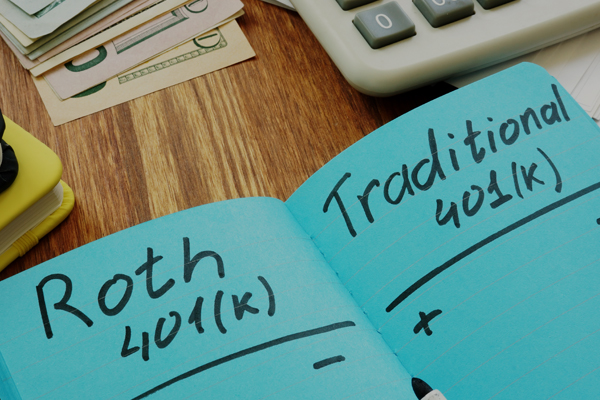


How Long Will My Retirement Savings Last?
You have made it to retirement, or perhaps you are just counting down the days until you retire. You have got money put away, but need to know how long it will last. There are key factors that will determine that, including your monthly spending and other sources of income. The rate of return on your outstanding savings balance, the taxes you pay on withdrawals and the impact inflation has on your required monthly spending will all have a significant impact as well.
How Long Will My Retirement Savings Last?
You have made it to retirement, or perhaps you are just counting down the days until you retire. You have got money put away, but need to know how long it will last. There are key factors that will determine that, including your monthly spending and other sources of income. The rate of return on your outstanding savings balance, the taxes you pay on withdrawals and the impact inflation has on your required monthly spending will all have a significant impact as well.
401(k) Calculator
A 401(k) account available through your employer is one of the best methods for building retirement savings. There are two key advantages. First, any contributions made to your 401(k) now are tax deferred, so each year's total taxable income will be lower. Second, some employers provide 401(k) match programs where they contribute to your 401(k) account. Depending on the program, employer contributions can range from 0% to 100% of your contributions.
401(k) Calculator
A 401(k) account available through your employer is one of the best methods for building retirement savings. There are two key advantages. First, any contributions made to your 401(k) now are tax deferred, so each year's total taxable income will be lower. Second, some employers provide 401(k) match programs where they contribute to your 401(k) account. Depending on the program, employer contributions can range from 0% to 100% of your contributions.
Traditional 401(k) vs Roth 401(k)?
Contributions to a Traditional 401(k) plan are made on a pre-tax basis, resulting in a lower tax bill, and higher take-home pay. Contributions made to a Roth 401(k) are made on an after-tax basis, which means that taxes are paid on the amount contributed in the current year. The reverse is true once you are eligible to make 401(k) withdrawals. Withdrawals from Traditional 401(k) plans are taxable, while those made from a Roth 401(k) are not.
Traditional 401(k) vs Roth 401(k)?
Contributions to a Traditional 401(k) plan are made on a pre-tax basis, resulting in a lower tax bill, and higher take-home pay. Contributions made to a Roth 401(k) are made on an after-tax basis, which means that taxes are paid on the amount contributed in the current year. The reverse is true once you are eligible to make 401(k) withdrawals. Withdrawals from Traditional 401(k) plans are taxable, while those made from a Roth 401(k) are not.
Retirement Income Estimator
What monthly income will your retirement savings provide? The number of years you will need it to last, the expected rate of return on your outstanding savings balance and the rate at which withdrawals from your savings account will be taxed, will all be determining factors.
Retirement Income Estimator
What monthly income will your retirement savings provide? The number of years you will need it to last, the expected rate of return on your outstanding savings balance and the rate at which withdrawals from your savings account will be taxed, will all be determining factors.
Spend it or Invest in an IRA?
Spending money today has a retirement price tag on it. What you fail to put away today for your retirement will impact how much you have available to you when you are ready to retire. That price tag will depend on how many years you are away from retirement and the rate of return you could receive on those funds over the savings period.
Spend it or Invest in an IRA?
Spending money today has a retirement price tag on it. What you fail to put away today for your retirement will impact how much you have available to you when you are ready to retire. That price tag will depend on how many years you are away from retirement and the rate of return you could receive on those funds over the savings period.
Estimate Social Security Benefits
The Social Security benefits you (and a spouse) will receive at retirement can be estimated based on your average annual income, your current age and your age when you retire. For a more accurate and detailed assessment, visit the Social Security Administration website at www.ssa.gov where benefits can be determined based upon your specific earnings history and the exact date of your retirement.
Estimate Social Security Benefits
The Social Security benefits you (and a spouse) will receive at retirement can be estimated based on your average annual income, your current age and your age when you retire. For a more accurate and detailed assessment, visit the Social Security Administration website at www.ssa.gov where benefits can be determined based upon your specific earnings history and the exact date of your retirement.
Save for Retirement
Saving for retirement can be a challenging task. The starting point for any retirement planning is an understanding of what your retirement needs will be. Once you have done that, you will have a target to aim at and be able to put together a savings plan that will get you there. Defining your retirement need requires that you have a retirement age in mind and a basic understanding of what your spending needs will be during your retirement years. A simple approach for defining your retirement needs is based on using a percentage of your current income, adjusted for inflation between now and when you retire. You might also want to consider how your salary will change based on merit or cost of living increases. Your retirement savings plan will follow; driven primarily by what you have saved to date and what you can save going forward each month. Don't forget to factor in any pensions or social security payments that you will be entitled to receive during retirement.
Save for Retirement
Saving for retirement can be a challenging task. The starting point for any retirement planning is an understanding of what your retirement needs will be. Once you have done that, you will have a target to aim at and be able to put together a savings plan that will get you there. Defining your retirement need requires that you have a retirement age in mind and a basic understanding of what your spending needs will be during your retirement years. A simple approach for defining your retirement needs is based on using a percentage of your current income, adjusted for inflation between now and when you retire. You might also want to consider how your salary will change based on merit or cost of living increases. Your retirement savings plan will follow; driven primarily by what you have saved to date and what you can save going forward each month. Don't forget to factor in any pensions or social security payments that you will be entitled to receive during retirement.










